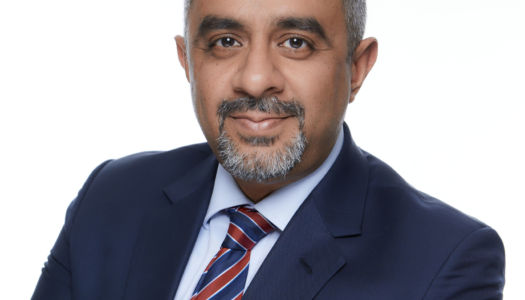The changes taking place in the way in which the world’s ultra-wealthy families approach their wealth management and structuring have been so significant that, over the past couple of years, family offices have undoubtedly moved centre-stage in the global wealth management industry.
It’s a movement that has prompted advisers, investment experts and indeed international finance centres (IFCs) to reposition themselves to cater for such a remarkable rise in the number and scale of family offices.
The numbers are big – according to Campden Research and UBS’s Global Family Office Report 2019, the total estimated assets under management of family offices stands at US$5.9 trillion globally. The report also estimates that there are 7,300 single-family offices worldwide, up a remarkable 38% from 2017; 42% are in North America and 32% in Europe, while Asia Pacific is catching up fast with an estimated 1,300 family offices, up an impressive 44% since 2017.
It’s also a complex picture – the definition of a family office varies considerably, with the remit of a family office potentially being incredibly broad. Today, a family office is truly global, diverse, and tech-savvy.
This rapid growth and increase in complexity has meant that, as commentators have sought to shine a light on trends within the sector, we invariably end up talking about macro trends and concepts, such as family units, models and structures, regional distinctions and investment appetites.
As a jurisdiction that has stood to benefit from this growth in family office activity, it’s been all the more important for us to understand what is really behind these figures and driving family office behaviour – which is why at Jersey Finance we took the opportunity to pause this year to reflect on the evolution taking place, and speak to the people working with the families themselves – family office principals – as a piece of fieldwork.
The output from those conversations is here – and what became clear as we were talking to them about their decisions, their aspirations and their client’s attitudes towards wealth and life, was something really so simple, fundamental and obvious but something that is sometimes forgotten – that behind these big figures and macro trends are real people.
Human
Overall, the conversations we had with Jersey-based family office principals really highlighted the personal experiences of the families and offered a fascinating – and crucially very human – insight into their rationale when it comes to jurisdictional decisions.
There were some common aspirations that came through in our conversations – all families were interested in wealth preservation, asset protection, philanthropy and privacy as key considerations.
But they were also all unique.
So yes, the family office principals we talked to almost all pointed to the stability of a jurisdiction as key when it came to choosing where to locate; and they all talked about reputational advantage, particularly in terms of attracting investors and pursuing philanthropic objectives.
The availability of specialist expertise was also a critical factor, as was the legal environment in terms of ensuring certainty around asset protection and wealth preservation, the focus on confidentiality and professionalism, and the value they place on the ease of doing business, through technology in particular.
But they also talked about lifestyle – the families preference to live in a place that offers a beautiful environment, countryside and seascape to wake up to each day.
One of the family office principals talked to us about how the outdoor lifestyle in Jersey is perfectly suited to their client’s younger children.
One of them talked about how being able to get on a plane to London and further afield was so important to the family, enabling them to visit relatives in all corners of the globe.
Another spoke at length about some of the global philanthropic projects the family is involved in, focussed on the marine environment, medical research, a suicide prevention helpline in the UK and social reform in prisons.
And one of them talked about the family’s businesses located in all corners of the world.
All different takes on what it means to be a family, supported by a family office. But in all cases, their experiences were very human, very realistic and very personal – something we need to be acutely aware of when it comes to delivering the solutions they need.
Looking Forward
Looking forward, IFCs like Jersey and firms that want to play a part in supporting the growth of the family office sector will need to look behind the big overarching figures and macro trends, to really get to the bottom of what it means to be a family.
And with the next generation set to play an increasingly important role in shaping what the family office looks like (as a recent white paper we did with Hubbis found), we will need to work harder than ever to understand future cultural and social family dynamics.
That’s what our fieldwork has taught us this year. By understanding the key human drivers behind family office decisions will put us in a really strong position to continue to support them, give them access to the specialist advice, products and services they need, and help them achieve their future ambitions.
Find quotes from Jersey-based family offices, related news articles and other useful resources about our family office offering at www.jerseyfinance.je/familyoffices




